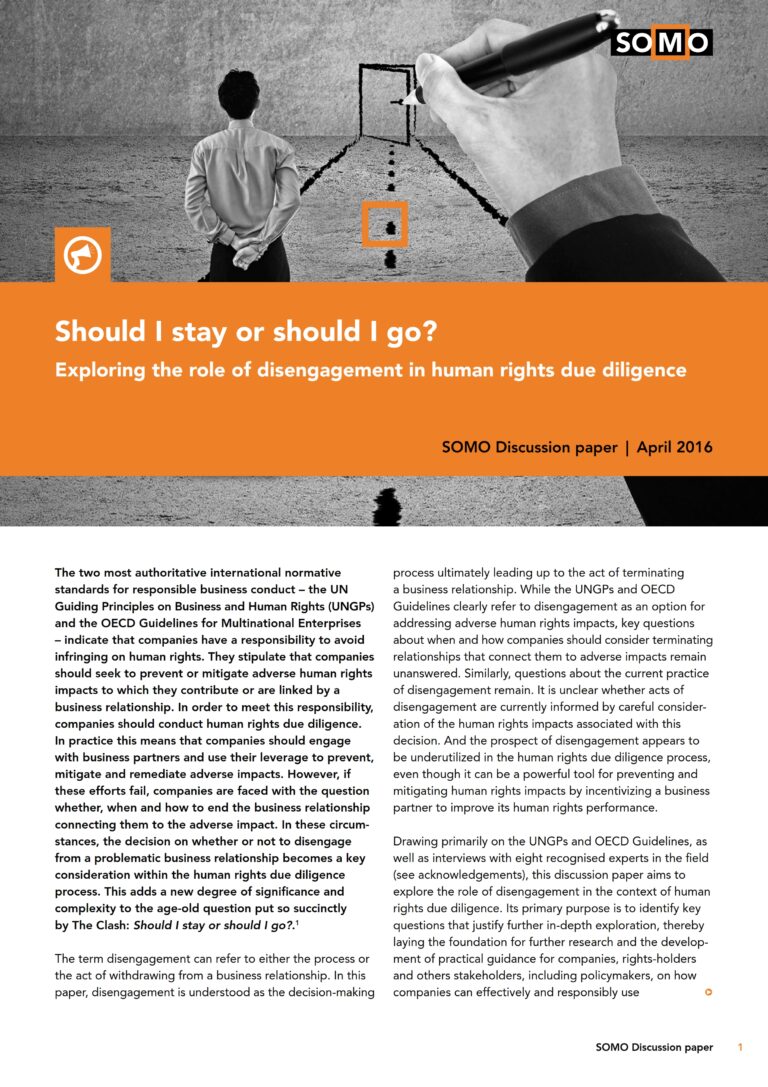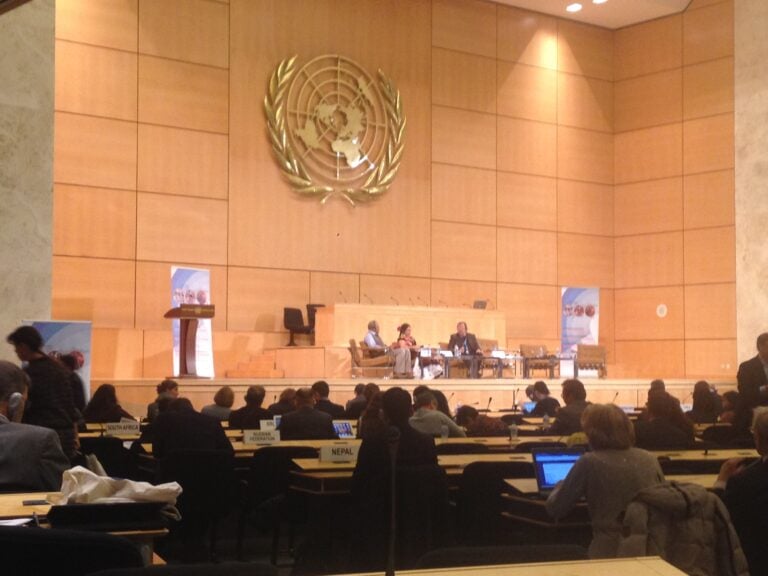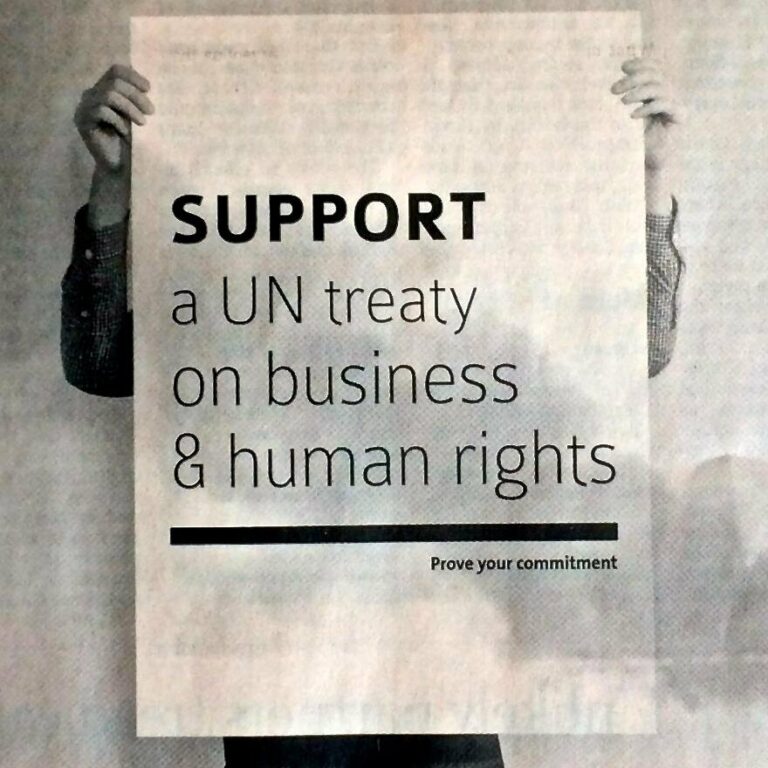
Responsible disengagement is placed firmly on the agenda of policy makers and company executives
While most guidance on business and human rights focuses on how investors or companies should responsibly engage with business partners, a less-developed but equally important aspect of the issue is whether, when and how to end a problematic business relationship. Disengagement – and the threat of disengagement – should be credible options when evaluating how to use and build leverage to address human rights abuses in a company’s value chain.
In 2016, SOMO made an important contribution to the topic with the discussion paper ‘Should I stay or should I go?’. The paper provides an overview of guidance on disengagement in the OECD Guidelines and the UN Guiding Principles on Business and Human Rights (UNGPs). But it digs even deeper by exploring practical considerations around the decision to disengage. The report on disengagement caught the attention of many stakeholders. SOMO was invited to give several workshops on the subject, including to a stakeholder event of the Dutch National Contact Point and the UN Annual Forum on Business and Human Rights 2016.
OECD provides additional recommendations to investors on responsible disengagement (divestment) in the new authoritative guidance on the financial sector
The new guidance document, which will be launched in March 2017, contains new recommendations to institutional investors on when it is necessary and appropriate for them to consider divesting from companies that commit human rights and environmental abuses.
The Dutch government encourages power companies to explore responsible disengagement in the coal supply chain
Following recommendations by SOMO, Dutch Minister for Foreign Trade and Development Aid, Lilianne Ploumen, expressed her support for exploring (temporary) disengagement as an instrument to address adverse human rights impacts in the coal supply chain. Therefore, SOMO was invited to run two workshops on responsible disengagement during an conference organized by the Dutch Ministry of Foreign Affairs and Dutch energy companies in December 2016. The workshops focused on the practical challenges and opportunities that companies face in strategically using (temporary) disengagement as an instrument to address adverse human rights impacts in the coal supply chain were discussed. Is it for example technically possible to temporary disengage when working with coal procurement technicalities? And what are the potential adverse human rights impacts of disengagement? The event served as the basis for the development of 2017 action plans by the Dutch government and Dutch power companies aimed at improving human rights and environmental conditions in Dutch power companies’ coal supply chain.
The UN Annual Forum on Business and Human Rights 2016
SOMO, Shift and Pax were invited to the annual forum on business and human rights to facilitate a session on responsible disengagement. Rachel Davis, Managing Director of Shift, framed the session by outlining what the UNGPs say about disengagement, how the process of disengagement can be as significant for the business partner making the decision to disengage as for the subject of that decision, and how important it is to consider the specific context of different disengagement decisions. By means of a talk show-style Q&A by moderator Joseph Wilde-Ramsing (SOMO/OECD Watch), participants in the session heard directly about the considerations and consequences of the decision from the actors who had been directly involved in a case in which a disengagement decision was made concerning child labour in the supply chain. The format enabled a frank conversation about how this type of decision making evolves in practice, and what effects it may have for all involved. The audience then moved into break-out groups for the limited time remaining, discussing the case and their own experiences with disengagement, including the factors that guide company decision-making on disengagement in practice. The plenary feedback resulted in a number of additional insights, including the importance of including the potential for disengagement on human rights grounds in contractual arrangements.
Future
Together with Shift, SOMO will continue collecting practice examples of successful and less successful disengagement and develop decision-making tools for responsible disengagement.
Do you need more information?
-

Joseph Wilde-Ramsing
Advocacy Director -

Marian Ingrams
Director of OECD Watch
Partners
-
Shift Project – www.shiftproject.org
Related content
-
Should I stay or should I go? Published on:
 Joseph Wilde-RamsingPosted in category:Publication
Joseph Wilde-RamsingPosted in category:Publication Joseph Wilde-Ramsing
Joseph Wilde-Ramsing
-

-

-
 Options for shaping the UN Treaty on businesses and human rightsPosted in category:NewsPublished on:
Options for shaping the UN Treaty on businesses and human rightsPosted in category:NewsPublished on:

